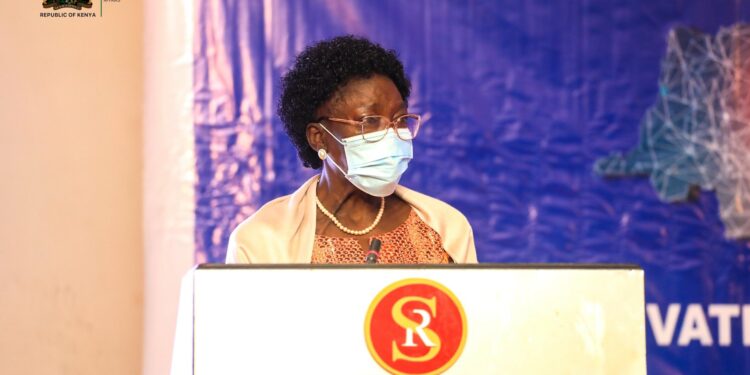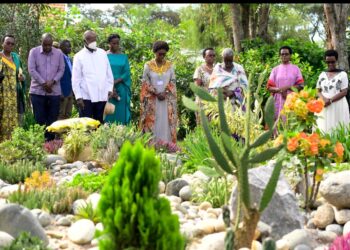In a bold and unreserved stance, 1st Deputy Prime Minister, Rt Hon. Rebecca Kadaga has launched a scathing critique aimed squarely at Kenya and South Sudan.
Her impassioned condemnation revolves around what she unequivocally labels as “unfair trade practices” that have been relentlessly frustrating Ugandan business operators.
Speaking at the 2023 East African Business and Investment Summit and Expo held at Speak Resort Munyonyo, Kadaga, who also serves as Uganda’s Minister for East African Community Affairs, expressed her frustration with South Sudan’s recent treatment of grain exporters to the country.
She specifically labeled it as impunity for authorities in Juba to detain maize products in a warehouse in Uganda while holding the keys and citing poor standards as the reason. Kadaga also questioned why South Sudan had not completed the Customs Union integration process.
The standoff between the two nations reached its peak in July when South Sudan impounded nearly 100 trucks, causing hundreds of them to be parked at the Elegu border.
It required the intervention of the Uganda National Bureau of Standards and the East African Standards Committee to secure their release. Kadaga’s reaction was triggered by a statement from the EABC Executive Director, John Bosco Kalisa, celebrating a historic 24 percent intra-EAC trade achievement in the 22 years since the EAC was revived.
Regarding Kenya, Kadaga expressed bewilderment over their practice of initially allowing Ugandan milk and then abruptly blocking the products midway through the agreed period.
She emphasized that such practices disrupt the entire trade value chain, affecting farmers, processors, and packaging factories, among others.
The forum centered around the theme “Private Sector Driven Regional Integration for Increased Intra-African Trade and Investment” and aimed to assess the region’s readiness for the Continental Free Trade Area.
Denis Karera, the Vice Chairperson of EABC, noted the low participation of EAC traders in the AfCFTA, with only two attendees, one from Kenya and one from Rwanda, confirming their involvement at the conference. Karera urged attendees to focus more on seizing the opportunities offered by the AfCFTA rather than merely discussing it.
Speaking about opportunities, Karera informed the business community about the transportation benefits provided by RwandaAir, which offered cargo discounts under the AfCFTA, as well as reduced taxes across the participating countries.
Kadaga also expressed concerns about the commitment of other African countries to the trade agreement, noting that several had not yet ratified it. At the conclusion of the event, numerous resolutions were adopted. These included strategies to increase intraregional trade to 40 percent of all EAC trade within five years, frameworks to protect traders, and advocacy for harmonized tax policies.
Other resolutions covered topics such as establishing a seamless telecommunications regime across the region, creating an open airspace, promoting SMEs, women, and youth in business, and adopting sustainable farming practices in the face of climate change, among various other resolutions.
Honorable Kadaga’s fervent denunciation of these practices comes as a stark reminder of the significant challenges faced by Ugandan entrepreneurs and traders in the international marketplace.
Her high-profile rebuke underscores the urgency of addressing these issues while shedding light on the complex dynamics and tensions inherent in East African trade relations.
Do you have a story in your community or an opinion to share with us: Email us at editorial@watchdoguganda.com













